- Home
- Scott Mariani
The Devil's Kingdom Page 2
The Devil's Kingdom Read online
Page 2
But as the Toyota bumped its way around the next corner a few moments later, they knew that everything wasn’t fine at all.
Rae muttered, ‘Oh, shit.’
Munro clamped his jaw tight and said nothing.
The two pickup trucks that blocked the road up ahead were the kind that were called ‘technicals’. Rae had no idea where that name had come from, but she recognised them instantly. The flatbed of each truck was equipped with a heavy machine gun on a swivel mount, drooping with ammunition belts that coiled up on the floor like snakes.
The machine guns were pointed up the road straight at the oncoming Toyota. A soldier stood behind each weapon, ready to fire. Several more soldiers stood in the road, all sporting the curved-magazine Kalashnikov assault rifles that Rae had quickly learned were a ubiquitous sight just about everywhere in the Congo, across a land mass bigger than all of Europe.
‘Could be government troops, maybe,’ Munro said nervously as the Toyota lurched towards the waiting roadblock. In a badly decayed and impoverished state where even regular army could closely resemble the most thrown-together rebel force, sometimes it was hard to tell.
‘Maybe,’ Joseph Maheshe said. He looked uncertain.
There was no driving around them, and certainly no way to double back. Joseph stopped the Toyota as the soldiers marched up and surrounded them, aiming their rifles at the windows. The unit commander was a skinny kid of no more than nineteen. He was draped in cartridge belts like an urban gangsta wraps himself in gold chains and had a semiauto pistol dangling against his ribs in a shoulder holster. A marijuana reefer the size of a small banana dangled from his mouth. His eyes were glassy and his finger was hooked around the trigger of his AK-47.
‘Let me handle this,’ Munro said, throwing open his door.
‘Be very careful, mister,’ Joseph Maheshe cautioned him. Anxiety was in his eyes.
As Munro stepped from the car, two soldiers grabbed his arms and roughly hauled him away from the vehicle. Rae swallowed and emerged from the other passenger door, her heart thudding so hard she could hardly walk. She’d heard the stories. There were a lot of them, and they generally ended the same way.
The soldiers on the trucks and on the ground all spent a second or two eyeing the Oriental woman’s skimpy top, the honey flesh of her bare shoulders and as much of her legs as were made visible by the khaki shorts she was wearing. Her attractiveness was an unexpected bonus for them. A few exchanged grins and nods of appreciation, before the teen commander ordered them to search the vehicle. They swarmed around it, wrenching open the doors and tailgate and poking around inside. Munro and Rae were held at bay with rifles pointed at them. Joseph Maheshe didn’t try to resist as they hauled him out from behind the wheel.
The soldiers instantly took an interest in the flight cases in the back of the Toyota. The unit commander ordered they be opened up.
‘Hey, hey, hold on a minute,’ Munro said, putting on a big smile and brushing past the guns to speak to the commander. ‘You guys speak English, right? Listen, you really don’t need to open those. It’s just a bunch of cameras. What do you say, guys? We can come to an agreement. Nothing simpler, right?’ As he spoke, he reached gently into the pocket of his shorts, careful to let them see he wasn’t hiding a weapon in there, and slipped out a wallet from which he started drawing out banknotes marked banque centrale du congo, the blue hundred-franc ones with the elephant on them.
The commander grabbed the wallet from him, tore out all the Congolese money that was inside as well as the wad of US dollars Munro was carrying, his credit cards and American driver’s licence, and stuffed it all in his combat vest. He tossed away the empty wallet.
‘Hey. I didn’t mean for you to take everything,’ Munro protested.
‘Shut up, motherfucka!’ the commander barked.
‘Give me back my dollars and my cards, okay? The rest you can keep. Come on, guys. Play fair.’
Rifles were pointed at Munro’s head and chest. Beads of sweat were breaking out on his brow and running into his eyes. He held up his palms.
‘What is your business here, American bastard?’ the commander asked.
‘Tourists,’ Munro said, his face reddening. ‘Me and my niece here. So can I have my dollars back, or what?’
Rae was thinking, Please be quiet. Please don’t make this worse. How could she be his niece? For such a gifted investigator, he was a hopeless liar.
The commander shouted orders at his men. Two of them stepped up, grabbed Munro by the arms and flung him on the ground. Rifle muzzles jabbed and stabbed at him, like pitchforks poking hay. Rae screamed out, ‘Don’t shoot him! Please!’
More of the weapons turned to point at her. She closed her eyes, but they didn’t shoot. Instead, all three of them were held at gunpoint while the soldiers went on ransacking the Toyota. They opened up the camera cases, spilled out Rae’s gear and quickly found the Canon EOS with the long lens. The commander turned it on and flicked through the stored images, calmly puffing on his joint, until he’d seen enough to satisfy him. He shook his head gravely.
‘You are not tourists. You are motherfucka spies. We will report this to General Khosa.’
At the mention of the name Khosa, Rae went very cold. That was when she knew that nothing Munro could say or do would make this situation worse. It was already as bad as it could be.
‘Spies? What in hell are you talking about? I tell you we’re tourists!’ But it wasn’t so easy for Munro to rant and protest convincingly while he was being held on the ground with a boot sole planted against his chest and a Kalashnikov to his head.
‘Kill this mkundu,’ the commander said to his soldiers. ‘When you are finished with the whore, cut her throat.’
Rae felt her stomach twist. She was going to be gang-raped and left butchered at the roadside like a piece of carrion for wild animals to dismember and gnaw on her bones. She wanted to throw up.
She had to save herself somehow.
And so she said the first thing that came to her.
‘Wait! My family are rich!’ she yelled.
The commander turned and looked at her languidly. He took another puff from his joint. ‘Rich? How rich?’
‘Richer than you can even imagine.’
He showed her jagged teeth. ‘Rich like Donald Trump?’
‘Richer,’ Rae said. That was an exaggeration, admittedly. It might have been true back in about 1971, twenty years before she was born, but the Lee family fortunes had dwindled somewhat since then. ‘If you don’t harm us, there will be a big, big reward for you.’ She spread her arms out wide, as if to show him just how much would be in it for him.
The commander digested this for a moment, then glanced down at Munro and kicked him in the ribs. ‘This motherfucka says he is your uncle.’
Munro grimaced in pain and clutched his side where he’d been kicked.
‘He’s my friend,’ Rae answered, fighting to keep her voice steady.
The commander seemed to find this hard to believe, but his main concern was money. ‘Is his family rich too?’
‘We’re Americans,’ she said. ‘All Americans are rich. Everybody knows that, right?’
The commander laughed. ‘What about him?’ He pointed at Joseph Maheshe.
‘He is just a stupid farmer,’ another of the soldiers volunteered. ‘How can he pay?’
‘This man is our driver,’ Rae protested. ‘He has nothing to do with this. Leave him out of it.’
The commander stepped closer to Joseph and examined him. Joseph had the classic Tutsi ethnicity, with fine features and a rather narrower nose, slightly hooked, that generally, though not always, distinguished them from Bantu peoples like the Hutu. During the Rwandan genocide it had been the worst curse of the Tutsi people that they could often be recognised at a glance.
‘This one looks like a cockroach,’ the commander said. It wasn’t the first time Joseph had heard his people described that way. Cockroach was what the Hutu death squads had
called his brother and their parents, before hacking them all to death.
‘Get on your knees, cockroach.’
Without protest, Joseph Maheshe sank down to his knees in the roadside grass and dirt and bowed his head. He knew what was coming, and accepted it peacefully. He knew the Americans might not be as lucky as this. He was sorry for them, but then they should not have come here.
The commander drew his pistol, pressed it to the side of Joseph’s head and fired. The sound of the shot drowned out Rae’s cry of horror. Joseph went down sideways and crumpled in the long grass with his knees still bent.
‘We will take these American spies to General Khosa,’ the commander said to his men. ‘He will know what to do with them.’
The soldiers tossed the camera equipment into the back of one of the armed pickup trucks. The two prisoners were shoved roughly into the other, where they were forced to crouch low with guns pointed at them.
‘You saved my life,’ Munro whispered to Rae.
Eventually, that would come to be something he would no longer thank her for. But for now they were in one piece. Rae looked back at the abandoned Toyota as the pickup trucks took off down the rough road. Joseph’s body was no more than a dark, inert smudge in the grass. Just another corpse on just another roadside in Africa. The vultures would probably find him first, followed not long afterwards by the hyenas.
As for Munro’s fate and her own, Rae didn’t even want to think about it.
Chapter 2
At various and frequent points throughout the ups and downs of what was turning out to be an unusually eventful existence, Ben Hope was in the habit of pausing to take stock of his life. To evaluate his current situation, to consider the sequences of events – planned or not – that had got him there, to ponder what lay ahead in the immediate and longer-term future, and to reflect on how he was doing generally.
All things considered, he had always thought of himself as being a pretty normal type of guy, and so he figured that this stocktaking exercise must be something most normal folks did, even though most normal folks probably didn’t tend to find themselves in the kinds of situations that invariably seemed to keep cropping up in his path. Just like most normal folks didn’t have to do the kinds of things he had to do in order to get out of those situations in one piece.
In his distant past, Ben’s stocktaking had involved thoughts like: Okay, so passing selection for 22 SAS might be the toughest challenge you’ve ever taken on, but you will not fail. You can do this. You will be fine.
Many years later it had been more along the lines of: All right, so you’ve walked away from the military career you struggled so hard to build and the future looks uncertain. But it’s a big world out there. You have skills. You will make it.
Or, some years further down the line again: So she’s left you for good this time, and you feel like shit. But you won’t always feel this way. You’ll survive, like you always do.
If there was one thing Ben had learned, it was this: that wherever the tide might carry him, whatever fate might throw at him, however desperate his situation, however impossible the task facing him, however dark his future prospects or slim his chances of survival, he would live to fight another day. He would not be defeated or deterred, not by anything, not by anyone. That spirit was what had driven him, bolstered him, enabled him to be the man he was. Or the man he’d thought he was.
But not now. Not anymore.
Everything had changed.
Because at this moment, as he sat there helpless and surrounded by aggressive men with guns, slumped uncomfortably on the dirty open flatbed of an old army truck with his knees drawn up in front of him and his head resting on his hands and every jolt of the big wheels and stiff suspension on this rough road somewhere in the middle of the Congo jarring through his spine, he was fighting a rising black tide of emptiness.
If there was a way out of this one, the plan had yet to come to him. And if there was a tomorrow, it wasn’t one that he was sure he wanted to face.
Sitting next to Ben, staring silently into space with a pensive frown, was his trusted old friend, Jeff Dekker, with whom he’d survived so many narrow scrapes in the past and come through in one piece. Beside Jeff was the tough young Jamaican ex-British army trooper named Tuesday Fletcher, on whom Ben had quickly learned he could absolutely depend.
But Ben was barely even aware of their presence. All he could think about – all that really mattered to him – was that his son Jude Arundel, just at the point in their troubled relationship where it looked as if they were finally bonding, was lost to him and there wasn’t a single thing Ben could do about it. And that riding happily at the front of the irregular militia convoy speeding along this dusty road, wearing a self-satisfied grin and probably smoking another of his huge cigars in victory, was the man who had taken Jude from him.
That man’s name was Jean-Pierre Khosa. Known as ‘the General’ to the army of heavily armed Congolese fighters who both feared and loyally served him, Khosa had every reason to be smiling. Most men would be, when they were carrying inside their pocket a stolen diamond worth countless sums of money and there was nobody to stop them from gaining every bit of power that wealth like that could afford.
Ben knew little about Khosa, but he knew enough, and had seen enough, for the seeds of doubt inside his own heart to grow into a chilling conviction that here, now, at last, was an enemy he couldn’t defeat. That Khosa could beat him.
And that maybe Khosa had already won.
Khosa seemed to know it, too.
There was no telling how many miles they’d driven through this jungle, coming across no sign of human habitation for hour after bruising, spine-jarring, mind-numbing hour. Ben had lost his watch before the start of the journey, and with it all track of time, except for the position of the sun which told him it would soon be evening again. They’d been travelling like this all day, and most of the night before with only a short stop in the middle of nowhere, for the troops to rest, brew coffee and gulp down a bowl of nondescript dried meat, beans, and rice. Ben hadn’t been hungry but he’d taken what he was offered. Military wisdom, left over from his past. Eat when you can, sleep when you can, preserve your strength.
They’d come a long way since then, and they were still in the middle of nowhere. There was an awful lot of nowhere around these parts.
The truck in which Ben and his friends were passengers was a dozen or so vehicles back from the spearhead of the convoy. To the rear, the long procession of armoured pickup trucks and Jeeps stretched out far in their wake like a cobra winding its way between the verdant thickets of wide-bladed leaves and tangled shrubbery that overhung the track and formed a tunnel overhead, blotting out much of the harsh sunlight that would otherwise have been cooking them inside their vehicles. Ben had counted thirty-five vehicles behind them when they’d set off, but the tail end of the snake had soon become obscured by the plume of dust thrown up by so many chunky off-road tyres pounding the rutted, sunbaked surface.
The dirt road seemed to go on and on forever, hardly changing. Now and then they would cross a rickety river bridge, and now and then the endless forest would break to offer views of sweeping plains and mountain valleys and mist-shrouded peaks in the distance. The Congo was a vast territory the size of most of Western Europe’s countries combined, but with barely any paved roads to connect it together and even less chance of running into any kind of major traffic, let alone a contingent of police or government troops. The authorities had the good sense to keep to the cities and give outlying areas a wide berth. Khosa’s small army rode through the jungle as if they owned the place – and to all intents and purposes they did. They were making no secret of their presence as they roared along to the soundtrack of angry African rap music that was blasting from a boombox wired to PA speakers somewhere back along the line, with all the aggressive confidence of two hundred or more pepped-up and hot-blooded young men with enough military hardware to level a town and the will to depl
oy it at the drop of a hat.
Ben was suddenly aware that Jeff Dekker was watching him, and glanced up to meet his friend’s gaze. Jeff’s face, his dark hair, and the DPM combat jacket he was wearing were all caked in dust. He looked weary and careworn, but there was a twinkle in his eye and his smile was irrepressible. Jeff was like that.
‘Mate, it’s going to be okay. You know that, don’t you?’
Ben said nothing. He tried to smile back, but his face felt numb.
‘Jude’ll be all right,’ Jeff said. ‘He’s as tough as his old man. Tougher.’
Ben didn’t reply. He appreciated his friend’s attempt to reassure him. But he didn’t believe a word he was saying.
‘We’ll get out of this,’ Jeff said. ‘We’ll find him. Hear me? Wherever these bastards have taken him, we’ll find him.’
Ben remained silent. Finding people was something he’d done a lot of in his time. He thought about all the kidnap victims he’d saved in the past, during the years between leaving the military and going into business with Jeff, when he’d called himself a ‘crisis response consultant’ – that catch-all phrase that didn’t quite do justice to the things he’d had to do or the methods he’d employed to help people who needed it.
Many of those he’d rescued had been children. All of them had been someone’s loved one. All of them strangers to him, and yet he’d risked his own life – and taken a good many others – to preserve theirs. And now, the victim incarcerated out there somewhere in conditions Ben didn’t even want to imagine was one of only two people in the world he could call his kin, and he was utterly powerless to help.
Ben couldn’t close out of his head the image of the last time he’d seen Jude, being forced at gunpoint into a black Mercedes limousine and taken away by a well-dressed African named César Masango. General Jean-Pierre Khosa called Masango his ‘political attaché’. Ben could think of better terms to describe him.
Kidnapper. Gangster. Walking dead man. That was just three.

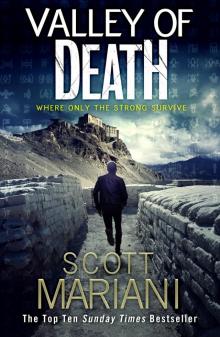 Valley of Death
Valley of Death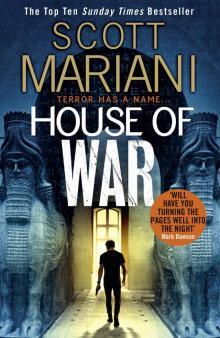 House of War
House of War The Pandemic Plot
The Pandemic Plot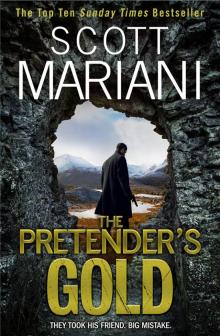 The Pretender's Gold
The Pretender's Gold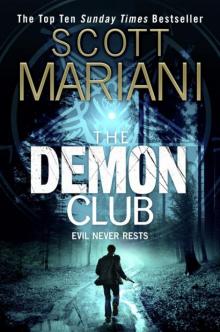 The Demon Club
The Demon Club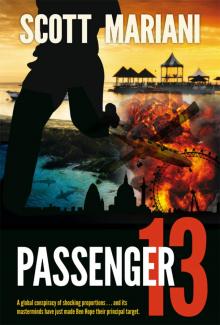 Passenger 13 (Ben Hope eBook originals)
Passenger 13 (Ben Hope eBook originals)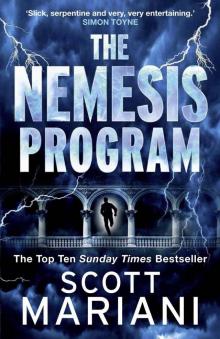 The Nemesis Program_Ben Hope
The Nemesis Program_Ben Hope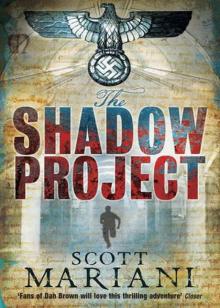 The Shadow Project
The Shadow Project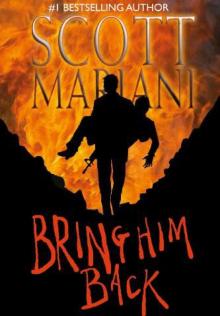 Bring Him Back
Bring Him Back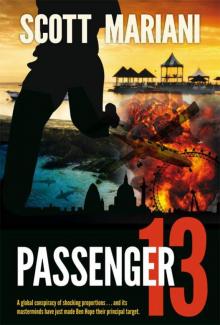 Passenger 13
Passenger 13 Sacred Sword (Ben Hope 7)
Sacred Sword (Ben Hope 7)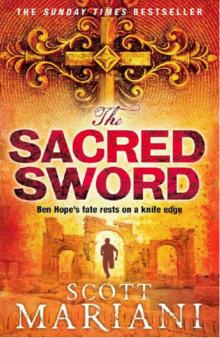 The Sacred Sword (Ben Hope 7)
The Sacred Sword (Ben Hope 7)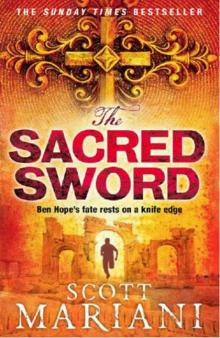 Sacred Sword
Sacred Sword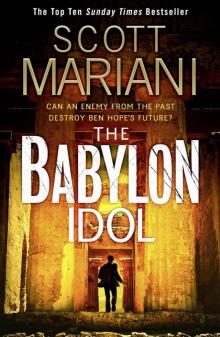 The Babylon Idol
The Babylon Idol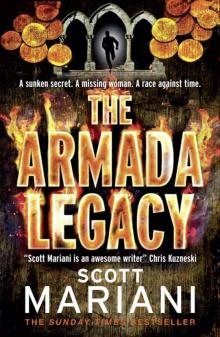 The Armada Legacy
The Armada Legacy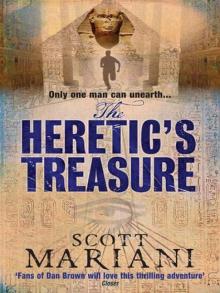 The Heretic's Treasure
The Heretic's Treasure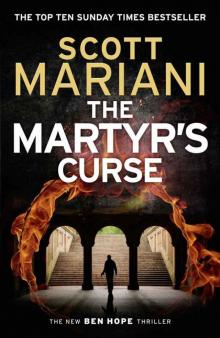 The Martyr’s Curse
The Martyr’s Curse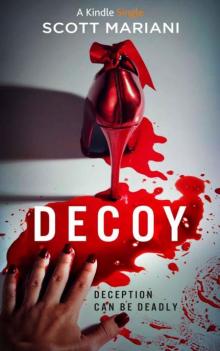 DECOY (Kindle Single)
DECOY (Kindle Single) The Bach Manuscript
The Bach Manuscript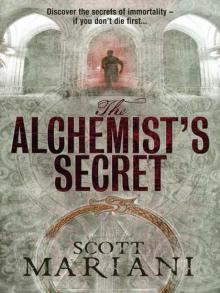 The Alchemist's Secret
The Alchemist's Secret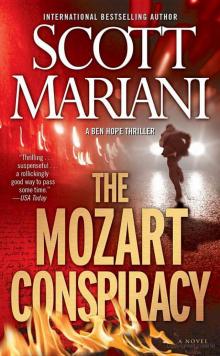 The Mozart Conspiracy: A Novel bh-2
The Mozart Conspiracy: A Novel bh-2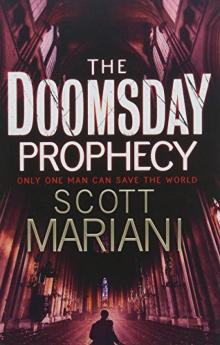 The Doomsday Prophecy
The Doomsday Prophecy The Ben Hope Collection: 6 BOOK SET
The Ben Hope Collection: 6 BOOK SET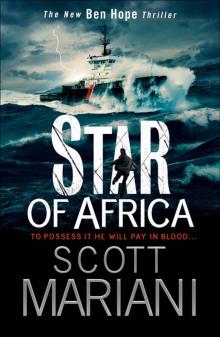 Star of Africa (Ben Hope, Book 13)
Star of Africa (Ben Hope, Book 13)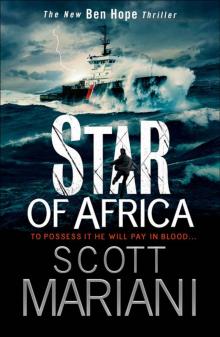 Star of Africa
Star of Africa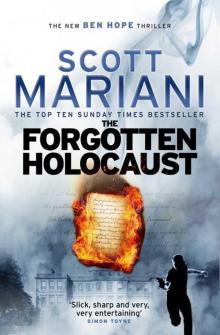 The Forgotten Holocaust (Ben Hope, Book 10)
The Forgotten Holocaust (Ben Hope, Book 10)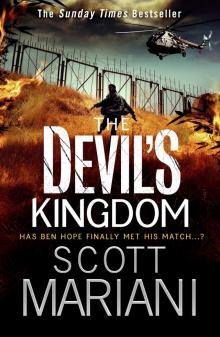 The Devil's Kingdom
The Devil's Kingdom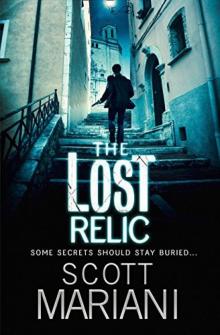 The Lost Relic
The Lost Relic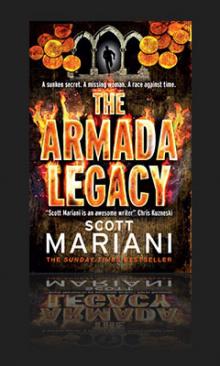 The Armada Legacy bh-8
The Armada Legacy bh-8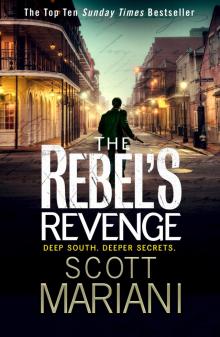 The Rebel's Revenge
The Rebel's Revenge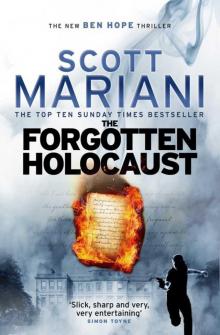 The Forgotten Holocaust
The Forgotten Holocaust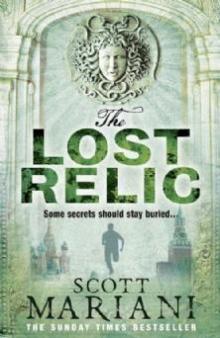 The Lost Relic bh-6
The Lost Relic bh-6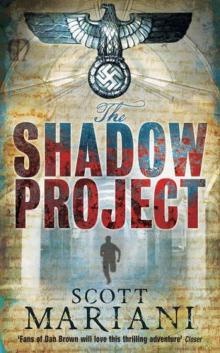 Ben Hope 05 - The Shadow Project
Ben Hope 05 - The Shadow Project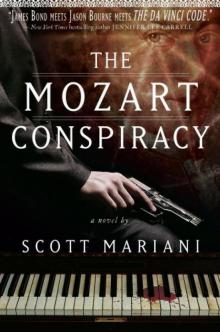 The Mozart Conspiracy
The Mozart Conspiracy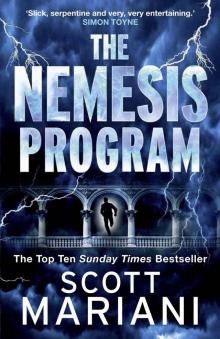 The Nemesis Program
The Nemesis Program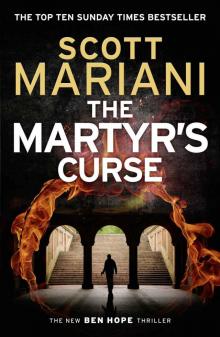 The Martyr’s Curse (Ben Hope, Book 11)
The Martyr’s Curse (Ben Hope, Book 11)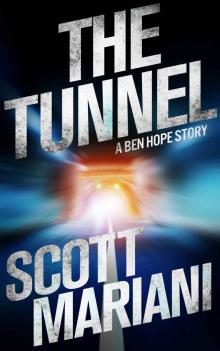 THE TUNNEL: A Ben Hope Story
THE TUNNEL: A Ben Hope Story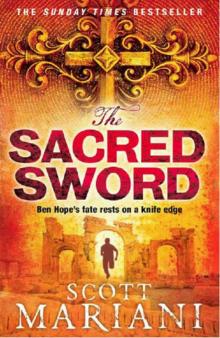 The Sacred Sword bh-7
The Sacred Sword bh-7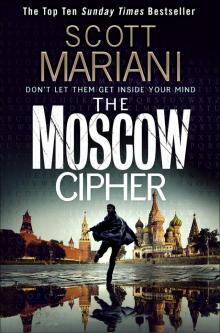 The Moscow Cipher
The Moscow Cipher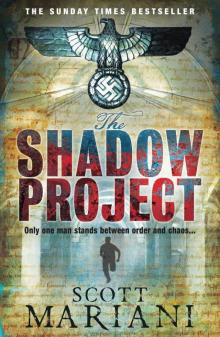 The Shadow Project bh-5
The Shadow Project bh-5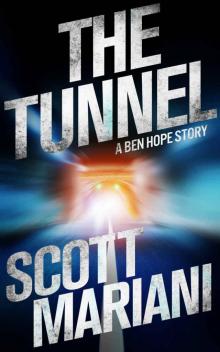 The Tunnel
The Tunnel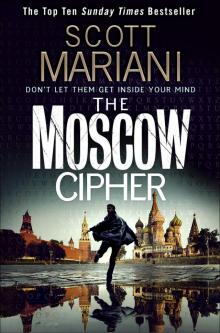 The Moscow Cipher (Ben Hope, Book 17)
The Moscow Cipher (Ben Hope, Book 17)